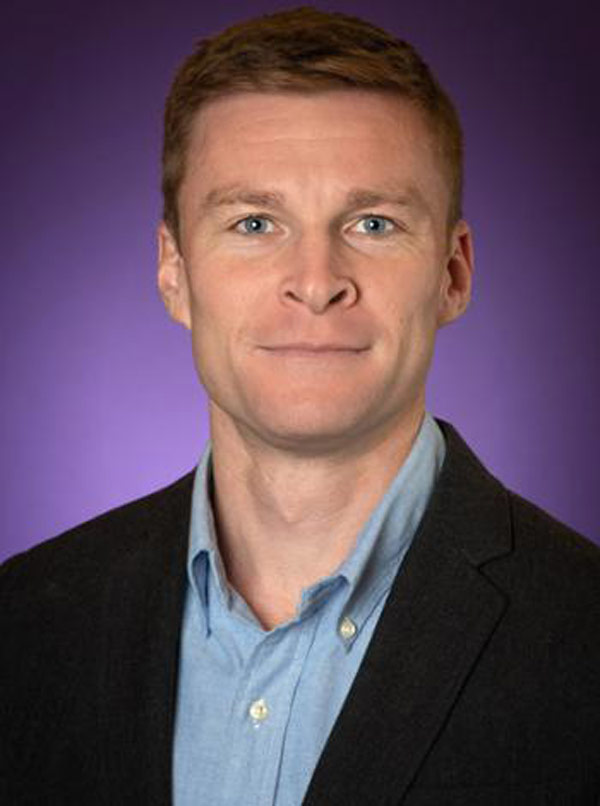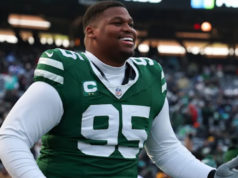Chicken Little’s tale regarding the sky falling seems like a best-case scenario as of late. The 2020 Summer Olympics have now been postponed, so hopes for collegiate sports returning before next fall are zero. In the absence of collegiate competition, I utilized the opportunity to meet –– virtually, of course –– with Fort Worth’s fastest marathoner and assistant professor of English at TCU, Joseph Darda.
Darda, broadcasting from his apartment near the Fort Worth Zoo, donned a University of Washington hoodie and a welcoming smile during our Skype session. The native Washingtonian is an amateur racer in the sense that he isn’t sponsored by any entity except his own determination. When asked about sponsors, the charmingly humble professor simply maligned that he wasn’t fast enough to gain serious consideration in that area. A competitive runner from his high school days, Darda ran cross country as well as indoor and outdoor track at his undergraduate institution, the University of Washington. Collegiate runners don’t compete in the marathon (10K being their longest distance), but Darda had the hunch that his lack of pure footspeed meant longer races would favor him.
The academic has won major marathons before. He broke the finisher tape at the Seattle Rock ’n’ Roll Marathon in 2018 and was runner-up in the Cowtown last year. We spoke about the Cowtown as a race. The ever-polite Darda carefully searched for words to describe our hometown trot’s place in the racing world.
“It isn’t a Boston or New York, because the professionals don’t show up,” Darda said. “I’ve run Boston before, and in those types of races, I’m categorized as sub-elite.”
I think most of us mere mortals will agree Darda’s personal best time of two hours and 27 minutes in the California International Marathon places him squarely in elite status compared with the rest of us casual or even serious 5Kers. His Cowtown performance speaks to Darda’s longevity as he didn’t take the lead from Oklahoma City runner Eric Delgado until near the 21-mile marker. Conditions weren’t ideal for most of this year –– 75-degree temperatures and strong winds aren’t the stuff distance dreams are made of –– but Darda’s general strategy played out well.
“I try to track my splits for the first eight miles to ensure I’m not going too fast,” Darda said when I inquired regarding race strategy.
After those first miles, he relaxes and hones in on his form. The Cowtown was the distance master’s 26th marathon, but the story wasn’t so sweet during the Dallas Marathon last December when he bailed at Mile 20 to accommodate a nagging knee injury that had plagued him during training. The DNF (Did Not Finish) was the first in his marathon career but a necessary one in retrospect.
“You don’t want to have to have that conversation with friends and family,” said Darda on dropping out of the Dallas Marathon. In retrospect, the difficult decision to forfeit the last six miles worked out well for him. The Cowtown champion didn’t have anything booked in his race schedule when we spoke, agreeing mutually that many short-term plans for many of us are on hold due to event cancellations from the coronavirus. Progress isn’t likely to be derailed for the marathoner, who admittedly has never adjusted to training in our Texas heat. The Left Coast native said he trains almost exclusively on his treadmill during our draining summer months and prefers racing in near-freezing temps that can be in short supply in our region. Darda grew up as a swimmer –– a sport famous for early-morning training –– but in his adult life, the coffee-dependent academic admitted he doesn’t wake up early enough to brew his caffeine fix and preempt the heat during the summer months.
The Trinity Trails serve as Darda’s training ground. Running, as a sport, generally upticks during an economic or social crisis because of its stress-relieving properties and light equipment demands. The trails aren’t currently any busier than normal, according to Darda, but he’s noticed more people running and then stopping to do push-ups or burpees and assumes they’re “CrossFit refugees.” The cold-weather fan credited his aversion to warm weather as a factor in his Cowtown victory. Acutely aware that he doesn’t perform as well in the heat, Darda started very conservatively during the race and finished two minutes slower than his time last year but one podium spot better.
Professionally, Darda is a fifth-year faculty member at TCU and assistant professor of American Literature with an emphasis in post-World War II literature and cultural studies. TCU has transitioned to online classes exclusively for the remainder of this academic semester. Darda wasn’t concerned for his own courses, which he was confident could morph more seamlessly online, remarking how difficult it must be for physical or lab-based sciences. I queried him for book recommendations, but like most academics, he doesn’t find the time to read for enjoyment and is bound by research obligations and the guilt of non-productivity for reading outside of his field. When not running or researching, he enjoys watching Succession and Silicon Valley on HBO. It seems that Darda, perhaps more than most, is well equipped to keep striving toward success both professionally and athletically during our extended hiatus from almost everything in the sports world. If you see Professor Joe on the trails, you should keep your social distance, which for most of us is easily accomplished by running at our normal pace.











